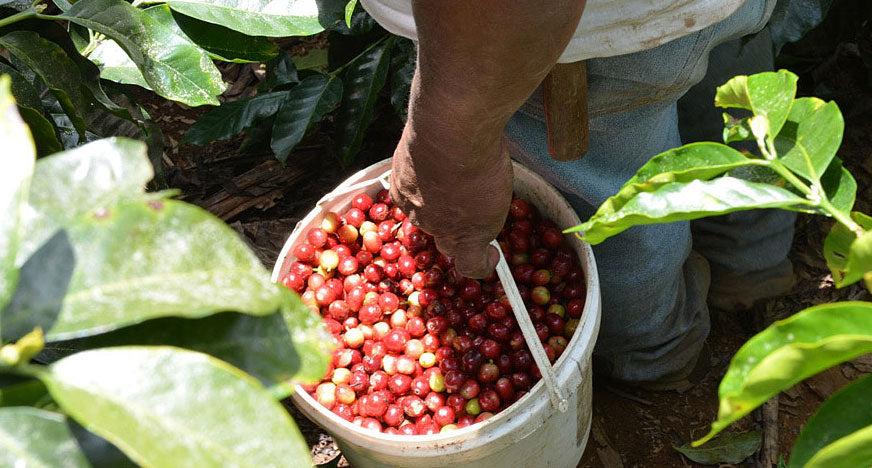
In March of this year I was fortunate enough to travel to Honduras, a trip exclusively tailored to sourcing coffee. At the heart of the trip we would be cupping over 100 different lots of coffee from the Marcala region, discerning which varieties we wanted to bring back with us. We were chasing some of the best coffees grown in the world. This isn’t tourist country, these are fields far, high, and tucked away.
 Angel’s farm, one of the highest we visited in the area.
Angel’s farm, one of the highest we visited in the area.
So, in the amazing care of the COMSA cooperative of Marcala, Honduras, we bussed, trucked, and huffed it to meet many farmers and see their farms. It was the dry season in Marcala, and by golly, I can’t imagine some of those roads in the wet season. They were brutally long, steep, and cratered.
As we visited more and more farms, an understanding beyond what I had expected began to take shape.
These families have grown coffee, as well as other crops, for generations. But in the last generation the ways of their forebears had given way to industrialized fertilizers, soil treatments, and pesticides. As the novelty of these items turned to necessity over the years, quality and understanding of the soil and its composition began to fade. Soils grew weaker and costs soared higher.
But where our journey joined their story was on the other side of that. Growing like a torrent from within this coop was a movement into organic farming. The COMSA coop has built a foundation of education that has reemployed old ways of creating healthy soils and mixed them with modern science; teaching farmers how to improve their soils with home grown treatments made of compost and minerals.

Freddy Perez describes how they create their own organic fertilizer now.
Each farm we visited seemed to spring with something new. Farms that had been abandoned for years had new coffee crops being grown organically and thriving. Homesteads were better harvesting compost, creating their own methane gases for use on the farm, and were using focused solar energy to dry coffees more efficiently.

Fabio’s fields had been abandoned for years, but they returned to start farming Organically.
The most amazing and tangible thing I saw this movement creating though, was the look of optimism and prosperity. The farmers of COMSA now have a greater understanding of the cycle of their farms and are creating an abundant life from it.
Part 2


Leave a comment
Also in News
Why We Work Exclusively With Small Farms
April 24, 2024
Continue reading
Exploring a Transforming Colombia - Comuna 13 in Medellín
April 07, 2023 2 Comments
Continue reading
2020 Thoughts and Gratitude
September 18, 2020 4 Comments
Continue reading